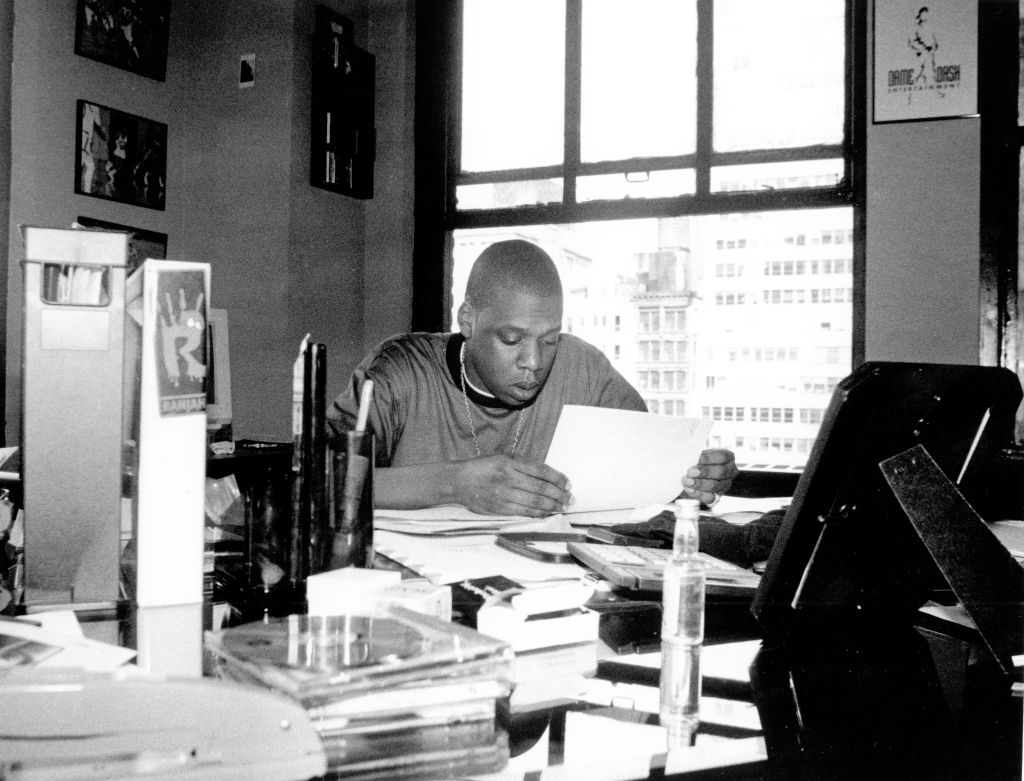
Source: Al Pereira / Getty
Jay-Z’s latest album 4:44 stirred something in the hip hop community, specifically among kinfolk who have long been the rapper’s core audience.
The album, which dives headfirst into adulting, strays from Jay-Z’s earlier content about partying, getting fast money through illegal means and running through women but rather talks about saving, investing and vulnerabilities. It’s fair to say that Jay-Z has officially become the OG in the neighborhood who used to wild out but his life all the way together.
The fact that Jay-Z is dropping financial gems all across this classic compilation is not up for debate— neither is his massive impact on the culture. Who hasn’t seen the quotes from the record flooding their social media timelines? It makes some people uncomfortable to talk about money and investments but the dialogue is necessary for a community that is fighting to make gains every day.
CASSIUS wants to keep the money movement moving. We reached out to financial expert, and hip-hop head, Carl Joseph-Black, and asked him to break down the major takeaways from Jay-Z’s masterpiece, “The Story of O.J.” and how you can apply it to your life, bar by bar.
Wish I could take it back to the beginnin’
I coulda bought a place in Dumbo before it was Dumbo
That same building today is worth 25 million
You wanna know what’s more important than throwin’ away money at a strip club? Credit
You ever wonder why Jewish people own all the property in America? This how they did it”
Carl Joseph-Black: This bar on real estate shows a regretful side of Jay, wishing that instead of spending his money on V12’s, he’d invested in appreciating assets, such as property in the now gentrified Dumbo section of Brooklyn. We’ve all missed opportunities—yours may have been $2000 and not $2 million— but the good news is that there will be others, especially in real estate. There are many ways to pick up cheap deals. Find out more about real estate opportunities through delinquent tax auctions or bank-owned properties here.
“I bought some artwork for 1 million
2 years later, that shit worth 2 million
Few years later, that shit worth 8 million
I can’t wait to give this shit to my children”
CJB: Basquiat’s, Warhol’s, Picasso’s… Hov has been on his art game for a while now. The art industry can seem like a black box and it can be difficult to find or build a valuable collection. The best ways to create one is by following the simple laws of supply and demand. Pick a focus for your collection and hunt down all of the available works within that subject area. For example, if you want to focus on “Black Panther art in the 1970s,” dig deep and do your research. Contact the artists from that time and try to track down their art and buy it. A great way to add value to your collection is by loaning it to local galleries and museums. To discover ways to grow your collection, or to get great art at value prices, click here.
“I told him, “Please don’t die over the neighborhood
Take your drug money and buy the neighborhood
CJB: Black people, as a collective, don’t own enough real estate but more importantly we don’t own enough businesses in our community. We don’t own the corner stores, the laundromats, the local restaurants, or bars, yet we consume the most in our neighborhoods. We also lack political representation in our neighborhoods. It may be difficult at first—saving, finding viable properties, etc.—but it is possible for us to reinvest in our neighborhoods. It simply requires deliberate action. Learn more about the strategic moves you can make here.
Carl Joseph-Black is the founder of RaisingBenjamin.com, a website dedicated to increasing the wealth of young Black millennials by sharing insights on Capital Markets and Wealth Management.
















